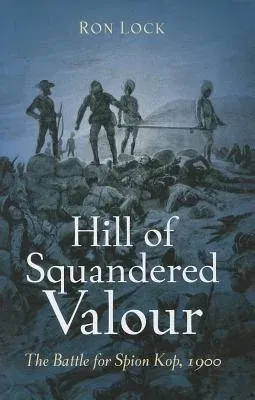The Battle of Spion Kop was fought during the campaign to relieve
Ladysmith, South Africa, after the Boers of the Transvaal and Orange
Free State had gotten a jump on the British Empire and besieged a
British army in the town. It was the single bloodiest episode in the
campaign, as well as a harbinger of the bitter and desperate fighting
still to come in the Second Boer War.
Spion Kop, just northeast of Ladysmith, was the largest hill in the
region, being over 1,400 feet high, and it lay almost exactly at the
center of the Boer line. If the British could capture this position and
bring artillery to the hill they would then command the flanks of the
surrounding Boer positions.
On the night of 23 January 1900, a large British force under Major
General Edward Woodgate was dispatched to secure the height, with Lt.
Colonel Alexander Thorneycroft selected to lead the initial assault.
However, the Boers refused to give up the position and a bitter two days
of fighting ensued. In the initial darkness the British mistakenly
entrenched at the center of the hill instead of the crest, and suffered
horribly from Boer marksmen clinging to the periphery. Suffering badly
themselves, the Boers were finally inclined to admit defeat when they
discovered that the British had retreated, leaving behind their many
dead. Yet, in light of the devastation wrought on both sides, the
British were finally able to rally and relieve Ladysmith four weeks
later.
Ron Lock, esteemed author of many Zulu warfare histories, brings to life
this bitter and previously overlooked campaign in vivid and complete
detail, with supporting sources including then-journalist Winston
Churchill's battle report, as well as many previously unpublished
illustrations and 6 newly commissioned maps. His account will be
valuable to both historians and strategists wanting to better understand
this difficult and devastating conflict.

